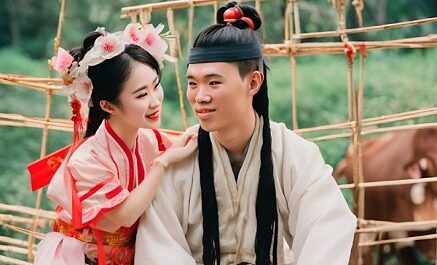Learn Chinese Idiom with Pinyin and English
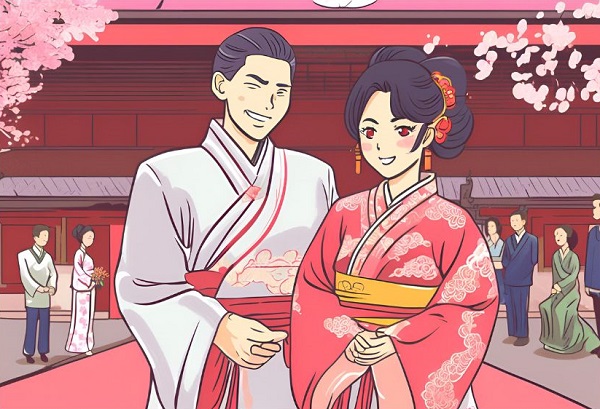
- Idiom in Chinese-女长当嫁。
- Pinyin of Idiom– nǚ zhǎng dāng jià.
- Idiom’s Meaning in English– This Chinese idiom expresses the traditional belief that a woman should marry when she reaches adulthood. It reflects the societal expectation that women should enter into marriage as a natural progression of life, especially in the context of traditional Chinese culture.
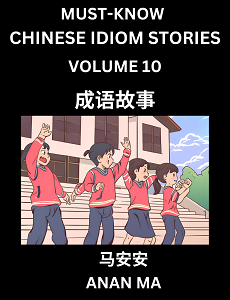
Chinese Idiom Stories Books (HSK All Levels):
- Books to Learn Chinese Idiom Stories (Part 1)
- Books to Learn Chinese Idiom Stories (Part 2)
- Books to Learn Chinese Idiom Stories (Part 3)
Learn Chinese Idiom Story in English (成语故事的英文)
In ancient times, there was a girl named Ayu. She was intelligent, kind, and virtuous. As she grew older, Ayu developed into a graceful young woman. Her parents began to worry about her marriage and hoped she would marry a suitable family. However, Ayu had her own thoughts about marriage and didn’t want to marry just for family honor or wealth.
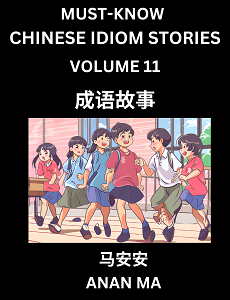
One day, a matchmaker came to propose a marriage for Ayu with a wealthy young man of good character. After meeting him, Ayu felt they had incompatible personalities and politely declined the offer. Her parents were disappointed but respected her decision.
Later, Ayu met a scholar at a temple fair and the two hit it off immediately. After getting to know each other, Ayu discovered that the scholar was not only talented but also had a gentle and kind nature. She decided to marry him and spend the rest of her life with him.
This story teaches us that “nǚ zhǎng dāng jià” does not mean a woman must marry when she reaches a certain age, but rather that she should find a truly suitable partner to lead a happy and fulfilling life.
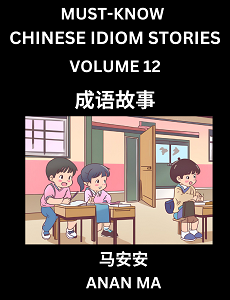
Learn Idiom Story in Chinese (成语故事)
在古时候,有个女孩叫阿玉,她聪明伶俐,善良贤淑。随着年龄的增长,阿玉渐渐长成了一个亭亭玉立的少女。她的父母开始为她的婚事操心,希望她能嫁给一个门当户对的好人家。然而,阿玉却对婚姻抱有自己的想法,她不想为了家族的荣誉或利益而随便嫁人。
一日,村里的媒婆上门提亲,说男方家境殷实,人品也不错。但阿玉在见过男方后,却觉得两人性格不合,便婉拒了这门亲事。她的父母虽然有些失望,但也尊重了她的选择。
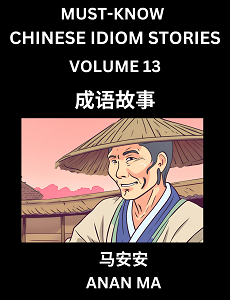
后来,阿玉在一次庙会上邂逅了一个书生,两人一见如故,相谈甚欢。在相互了解之后,阿玉发现这个书生不仅才华横溢,而且性格温和,心地善良。于是,她决定与书生结为夫妇,共度余生。
这个故事告诉我们,女长当嫁并不是指女人到了年龄就必须嫁人,而是要找到一个真正合适自己的人,才能过上幸福美满的生活。
Learn Keywords with English, Simplified Chinese Characters, and Pinyin (关键词)
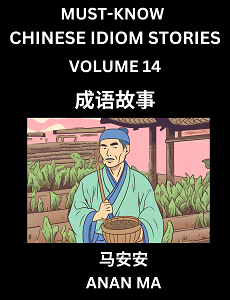
- 阿玉 (Āyù): Ayu, the protagonist of the story
- 亭亭玉立 (tíng tíng yù lì): slender and graceful
- 婚事 (hūn shì): marriage
- 媒婆 (méi pó): matchmaker
- 门当户对 (mén dāng hù duì): matching families
- 庙会 (miào huì): temple fair
- 书生 (shū shēng): scholar
- 才华横溢 (cái huá héng yì): brilliant and talented
- 性格温和 (xìng gé wēn hé): gentle in nature
- 心地善良 (xīn dì shàn liáng): kind-hearted
Pinyin of Idiom Story (故事的拼音)
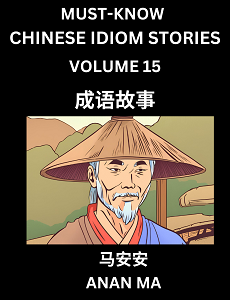
Zài gǔ shíhòu, yǒu gè nǚhái jiào āyù, tā cōngmíng línglì, shànliáng xiánshū. Suízhe niánlíng de zēngzhǎng, āyù jiànjiàn zhǎng chéngle yīgè tíngtíngyùlì de shàonǚ. Tā de fùmǔ kāishǐ wèi tā de hūnshì cāoxīn, xīwàng tā néng jià gěi yīgè méndānghùduì de hǎo rénjiā. Rán’ér, āyù què duì hūnyīn bào yǒu zìjǐ de xiǎngfǎ, tā bùxiǎng wèile jiāzú de róngyù huò lìyì ér suíbiàn jià rén.
Yī rì, cūnlǐ de méipó shàngmén tíqīn, shuō nánfāng jiājìng yīnshí, rén pǐn yě bùcuò. Dàn āyù zài jiànguò nánfāng hòu, què juédé liǎng rén xìnggé bùhé, biàn wǎnjùle zhè mén qīnshì. Tā de fùmǔ suīrán yǒuxiē shīwàng, dàn yě zūnzhòngle tā de xuǎnzé.
Hòulái, āyù zài yīcì miàohuì shàng xièhòule yīgè shūshēng, liǎng rén yījiànrúgù, xiāng tán shèn huān. Zài xiānghù liǎojiě zhīhòu, āyù fāxiàn zhège shūshēng bùjǐn cáihuáhéngyì, érqiě xìnggé wēnhé, xīndì shànliáng. Yúshì, tā juédìng yǔ shūshēng jié wéi fūfù, gòngdù yúshēng.
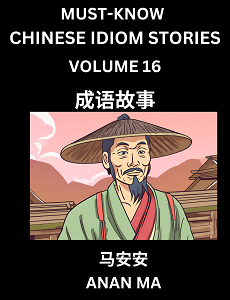
Zhège gùshì gàosù wǒmen, nǚ zhǎng dāng jià bìng bùshì zhǐ nǚrén dàole niánlíng jiù bìxū jià rén, ér shì yào zhǎodào yīgè zhēnzhèng héshì zìjǐ de rén, cáinéngguò shàng xìngfú měimǎn de shēnghuó.


